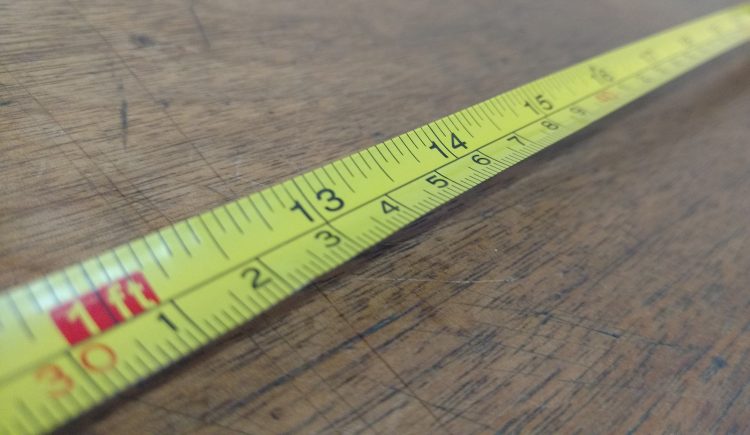 A friend of mine recently mentioned that she had “broken up with her scale.” When I asked her if this was a good thing, she told me yes, so I congratulated her.
A friend of mine recently mentioned that she had “broken up with her scale.” When I asked her if this was a good thing, she told me yes, so I congratulated her.
I know a psychologist who sponsors a “scale burning” for her patients, and while I’m not her patient, she invited me to join in.
All this animosity towards a simple device got me thinking about metrics and measurement. I use my scale weekly to monitor my progress towards a weight loss goal. I don’t love it or hate it, it’s simply a measurement tool, and I use it because it’s meaningful to me to tell the story about what I’m doing in my fitness journey. I’ve been known to take circumference measurements of my waist, quads, and biceps, too. I don’t hate those measurements either. They were just meaningful metrics that told the story of what I was trying to accomplish at the time.
Everything you do can be measured, and measurement, for many of us, is motivating. I’m not denying that obsession with your weight is unhealthy. Obsession with just about any body measurement is unhealthy. But if you want to know your progress, you have to choose a meaningful metric that tells the story of your journey.
Some of you may have noticed that I put this in the marketing category here on the blog as well as muscle. What does this have to do with marketing?
Every marketing decision you make can be measured, and should. You have to choose the metrics that are meaningful to you and tell the story of where you are on the journey. A lot of beginning social media marketers focus on follower counts, because that number is meaningful to them, and motivates them to gain a wider audience. Later, they might look at overall impressions. As they gain critical mass, they’ll go deeper to see what variations on a post gain them more of whatever it is they want – engagement, conversions, click-throughs. But like any measurement tool, it’s not there to be loved or hated – it’s there to tell a piece of a story. You just have to decide if the story is meaningful to you.
